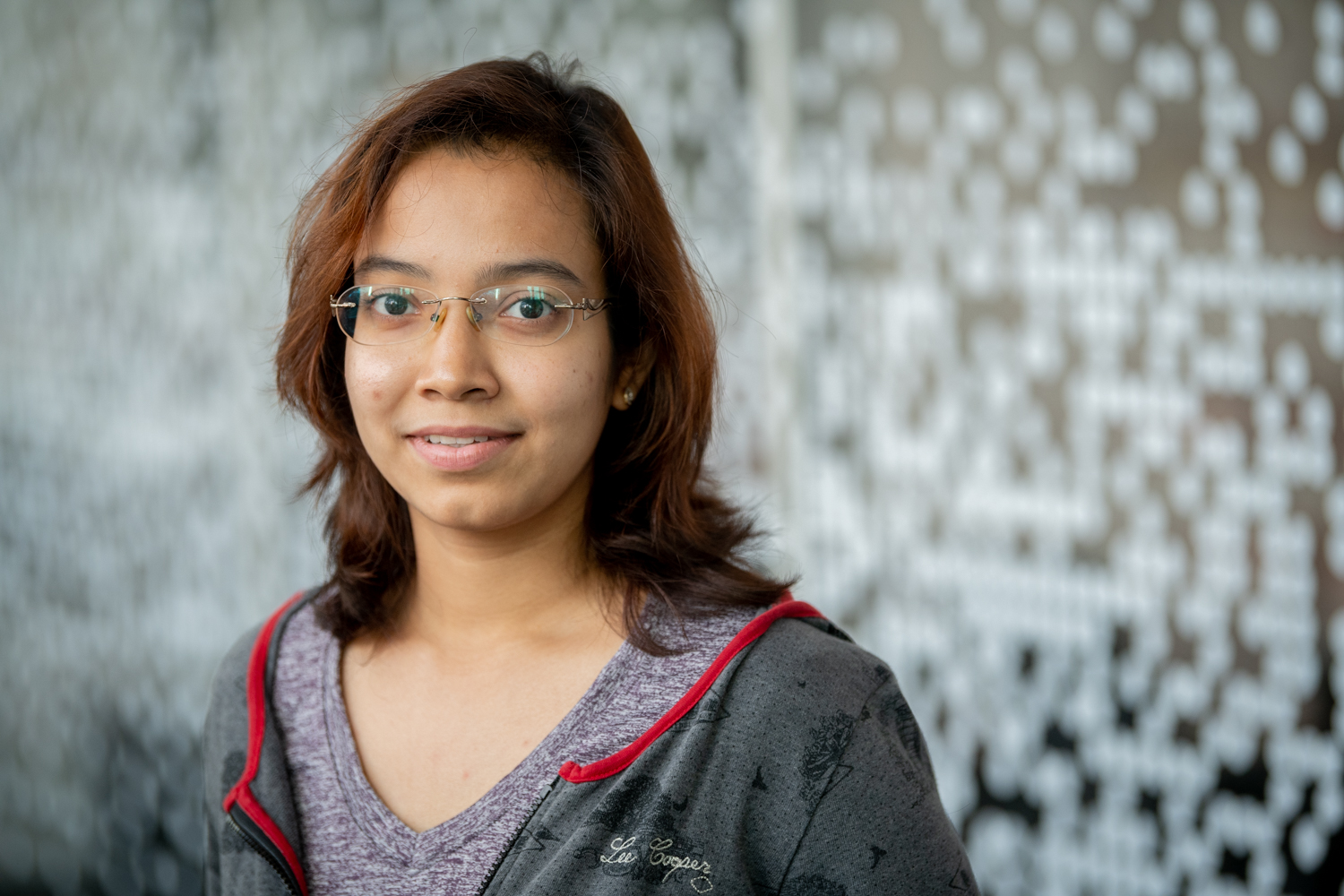Meeting (Online Only - check links below)
For the remainder of the semester, we'll post a few short videos each week, along with sample code and a handout or two (everything will be on the schedule page). Watch the videos, read the handout, and then pop into the remote meetings linked below if you have questions. Same process for the remaining labs, too!
| Lecture | Sec 1 (Strange): W 1:35-4:50pm. https://northeastern.zoom.us/j/196387332
Sec 2 (Strange): W 6:00-9:15pm. https://northeastern.zoom.us/j/792420679 |
| Recitation (CS5003) | Sec 1 (Bagley): R 1:35-4:50pm. https://zoom.us/j/850437771 Sec 2 (Strange): R 6:00-9:15PM. https://northeastern.zoom.us/j/792420679 |
| Final Exam | April 15, 2020 during lecture |
Syllabus
| Syllabus: | Download (PDF) |
| Grading rubric: | Download (PDF) |
Instruction Team
(Office hours begin on Friday, January 10th.)
Professor Laney Strange

| laneys@northeastern.edu | |
| Web | https://northeastern.edu/home/laney |
| OH Link | https://northeastern.zoom.us/j/9054922952 |
| Office Hours | TR 3:00-5:00pm |
Professor Keith Bagley

| k.bagley@northeastern.edu | |
| Web | https://www.ccs.neu.edu/home/kbagley |
| OH Link | https://zoom.us/j/225514907 |
| Office Hours | M 5:30-7:30pm
R 12-1:00pm R 5:30-7:30pm |
Teaching Assistant Isabella Avila Lares

| avilalares.i@husky.neu.edu | |
| Office Hours | W 11am-1pm |
Teaching Assistant Bobby Lupo

| lupo.r@husky.neu.edu | |
| Office Hours | Su afternoon (see piazza for hours each week!) |
Teaching Assistant Brennan Beeler

| beeler.b@husky.neu.edu | |
| Office Hours | T 5-8pm |
Teaching Assistant Samuel Engida

| engida.s@husky.neu.edu | |
| Office Hours | W 4:30-7:30pm |
Teaching Assistant Kraig Johnson

| johnson.kra@husky.neu.edu | |
| Office Hours | R 11am-1pm |
Teaching Assistant Shebna Mathew

| mathew.she@husky.neu.edu | |
| Office Hours | T 2-5pm, F 3-6pm |
Teaching Assistant Edward Wersocki

| wersocki.e@husky.neu.edu | |
| Office Hours | F 3-6pm |
Teaching Assistant Utkarshna Sinha
| sinha.ut@husky.neu.edu | |
| Office Hours | M 5-8pm |
Teaching Assistant Kristi Spicer
| spicer.k@husky.neu.edu | |
| Office Hours | M 5-8pm |
Teaching Assistant Miranda Tran

| tran.mir@husky.neu.edu | |
| Office Hours | T 2-5pm |
Teaching Assistant Dayton Wilson

| wilson.jos@husky.neu.edu | |
| Office Hours | W 11am-1pm |
Teaching Assistant Zefan (KD) Zhang

| zhang.zef@husky.neu.edu | |
| Office Hours | T 5-8pm |
Teaching Assistant Archita Sundaray

| sundaray.a@husky.neu.edu | |
| Office Hours | Sa 2-5pm |
Course Goals
This course is an accelerated introduction to computer science with the Python programming language. Along with the other courses in the Align program, it will prepare you to complete your Master's Degree in computer science.
We believe that computer science is for everyone. No matter what your background is, you can succeed in CS5001. Computer science is a creative, collaborative field -- it's not just programming. Although programming is certainly an important craft and Python is an essential tool, we emphasize concepts and problem-solving over programming language. Learning computer science is like learning a new spoken language. There are rules of syntax and semantics, and sometimes a whole new mindset will apply. In this course, you'll learn how to think algorithmically, and how to solve problems elegantly.
| Topics |
|
| Homework | will be assigned (almost) every week. You'll break down big problems into smaller ones and put your problem-solving skills to work with Python |
| Recitation (CS5003) | is required. We meet every thursday to get additional coding experience, as well as for special Align seminars. |
Evaluation
The final grade for this course will be weighted as follows.
- Homework (lowest dropped): 40%
- Project: 10%
- Quizzes: 10%
- Midterm: 20%
- Final: 20%
Homeworks will be evaluated according to the CS5001 Grading Rubric. Your lowest homework score will be dropped and will not count towards your final grade. You have two late-day tokens, which you can apply to any homework throughout the semester (or split them up and apply one late-day token to two homewoerks). Apart from these two days, no late submissions are accpted.
There are 5-7 questions per quiz. Your quiz grade will be scaled, though (for example, getting one question wrong on a 6-question quiz doesn't mean your quiz score is 5/6 = 83%). Quiz scaling will be applied as follows:
- Zero incorrect: Perfect
- One incorrect: Good
- Two incorrect: Satisfactory
- Three incorrect: Fair
- Four incorrect: Unsatisfactory
- More than four incorrect: Poor
Classroom Environment
In our classroom, please ask questions, and answer questions! In computer science, we seldom get anything right on the first try. We see how an attempt turned out, and we try again. I like our classroom to reflect that approach as well; so please answer a question that's been posed, even if you're not sure of the answer.
To create and preserve a classroom atmosphere that optimizes teaching and learning, all participants share a responsibility in creating a civil and non-disruptive forum for the discussion of ideas.
Students are expected to conduct themselves at all times in a manner that does not disrupt teaching or learning. Your comments to others should be constructive and free from harassing statements.
When you come to class, I ask that you be fully present. No phones are permitted in the classroom. If you use a laptop, use it only to take notes. Please be respectful of your fellow students and me by participating attentively and non-disruptively.
